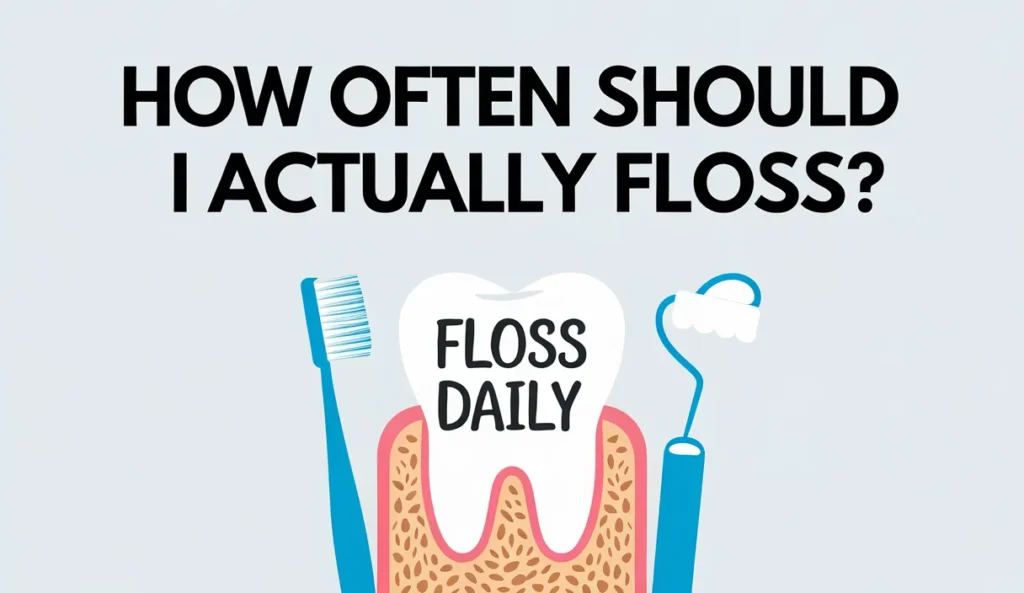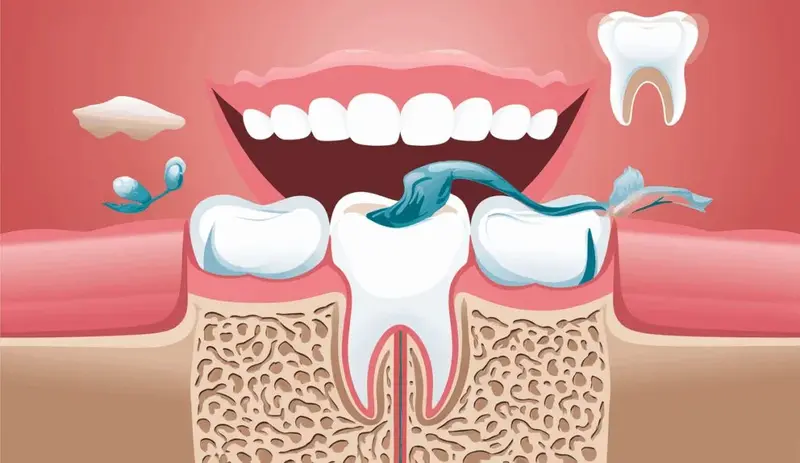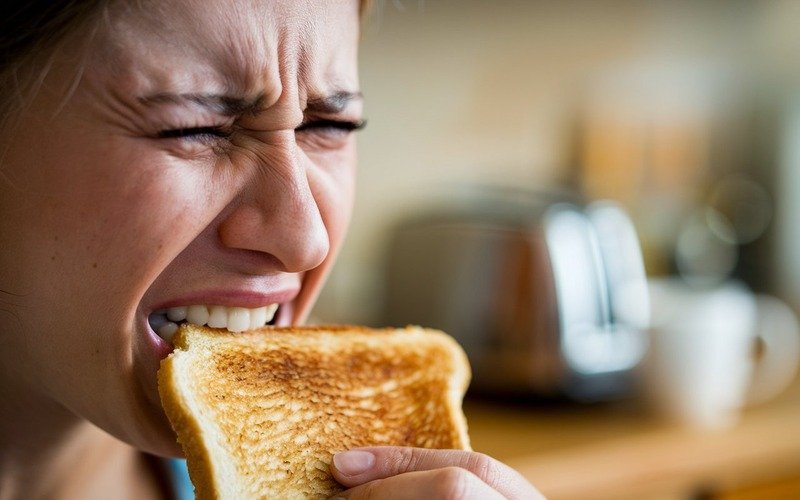
You know that moment at the dentist when they ask, “How often do you floss?” and you suddenly become an expert at avoiding eye contact? Yeah, we’ve all been there. Most of us treat flossing like that annoying chore we know we should do but secretly hope will just… disappear.
But here’s the thing – your mouth is telling a story, and skipping floss is like leaving out major plot points. The good news? You’re about to get the real scoop on flossing – no lecture, just honest information that’ll actually make sense.
We’re going to break down how often you really need to floss, what happens when you don’t, and how to make this whole routine way less painful.
What Actually Happens When You Skip Flossing?
Let’s discuss the minuscule narrative playing out between your teeth. Visualize a tiny war zone where food particles turn into tiny invaders that are trying to take over your mouth.
When you don’t floss, these microscopic soldiers of food start staging a mutiny and set up right between your teeth, establishing a plaque-riddled “no man’s land” that you can’t see but that is super close to your gums. It’s basically the battlefield of your mouth, and it’s gross.
Dental plaque is not some benign formation. Picture a sticky, nasty film that has actually become a five-star hotel for bacteria. Bacteria are the microscopic troublemakers that do nothing and can do nothing but profusely thank you for forgetting to floss.
And they thank you by multiplying in massive numbers and throwing a party in your mouth. That mouth party is unmixed bacteria with concentrated acid and noxious waste products. And you know what? They love tight spaces-like the ones between your teeth-where they jam and don’t let up.
You May Like: Why Are My Teeth Not Perfectly White? (Natural Tooth Color Truth)
How Often Should You REALLY Floss?
Most folks don’t realize this: when dentists at LifeWorks Dental tell you to floss, it’s not just for fun. The gold standard is actually pulling the stuff between your teeth once daily, preferably before you hit the hay. Why before sleeping? Because that’s when your mouth, and the bacteria in it, are most in need of a good cleaning.
The vast majority believe that flossing takes a long time and is a huge commitment, but we’re really talking about 60 seconds max. Seriously.
Just one minute can dramatically change your oral health. Most recommend flossing at night to get out all the food that has accumulated in your mouth during the day and to prevent any bacteria from having a party while you sleep.
Flossing Hacks for People Who Hate Flossing
If you can’t stand traditional flossing, we have good news. Technology has your back. Water picks are like tiny pressure washers for your teeth—they blast away food and plaque in seconds. They’re especially great for people with braces or who find traditional flossing difficult.
Flossing doesn’t have to feel like a dreaded task. One way to take the “ugh” out of it is just to make it a little more fun. Flossing is not a leisurely pastime, so why not try to pair it with something you already enjoy? Here are some ideas. Try doing it while you watch your favorite show.
Signs Your Mouth is Begging You to Floss More
Some not-so-subtle signals your mouth sends when you’re neglecting to floss are worth a discussion. Are your gums bleeding? That is definitely not normal. They are signaling distress, and it’s time for a little oral intervention.
Are you experiencing breath that is so weird and won’t go away no matter what you do? You are probably harboring some bacteria that are living it up between your teeth.
Another red flag is sensitivity between teeth. When plaque accumulates, it can create little crevices and may lead to decay-and believe me, getting your teeth drilled and filled is a lot less fun than taking 60 seconds to floss. Check out our location near you for professional dental care.
Insider tip: If classic floss seems unmanageable, begin with baby steps. Flossing two or three times weekly is a win compared to not doing it at all. You’ll unfuturedly save money on dental visits and procedures for the problems you would have had without those infrequent mornings and evenings spent with a strand of string.
Look, flossing isn’t about being perfect. It’s about taking small steps to keep your mouth healthy. Start with once a day, be kind to yourself, and remember – your future self will thank you for those 60 seconds of effort.






